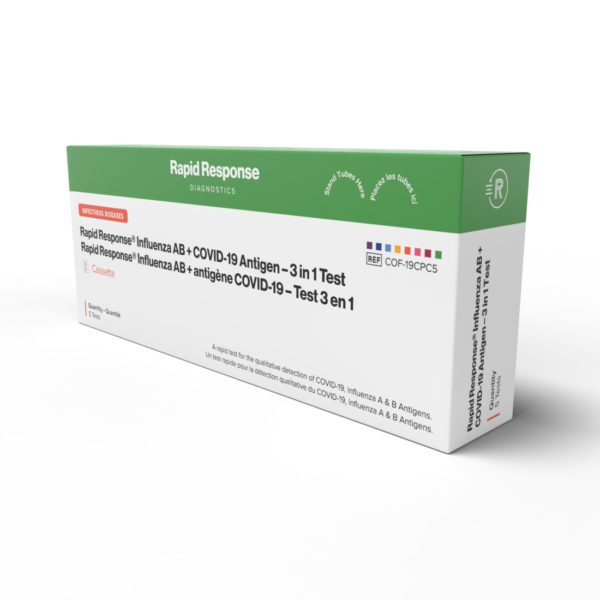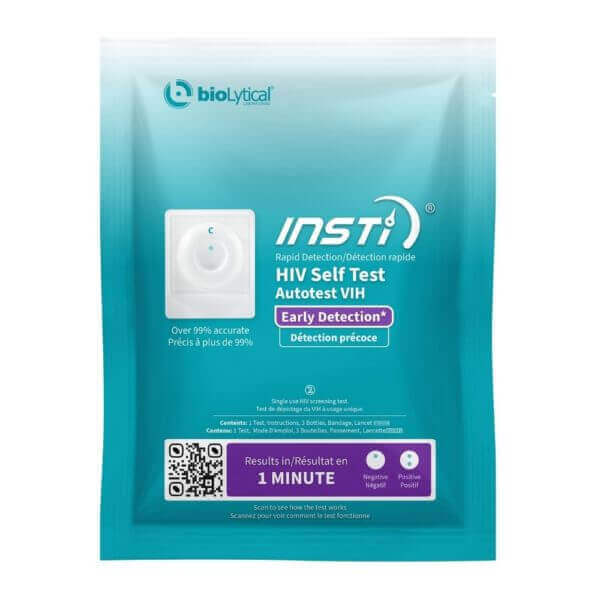As continuing effects of COVID-19 have become apparent for some people, many of us have been wondering: What is long COVID? This condition, where symptoms last weeks or months after the virus is gone, is known as…
- long COVID
- longhaul COVID
- post-COVID-19 condition
- post-acute COVID-19
Symptoms may range from physical problems such as fatigue and shortness of breath to cognitive issues such as difficulty concentrating and brain fog. The duration can extend from four weeks to many months and potentially years after an initial COVID-19 infection (and in some cases, affect people without COVID diagnoses).
The Public Health Agency of Canada emphasizes that “Post COVID-19 condition is not COVID-19. Symptoms can be quite different from those during the initial infection.”
While numerous studies are underway, the condition is still a mystery to medical professionals, as long-term effects could take years to observe.
How Do I Know If I Have Long COVID?
Currently, no test is available to determine if someone has long COVID. Although your COVID-19 symptoms may persist, the virus is no longer in your body if a COVID test shows a negative result.
Long COVID appears to primarily affect people with pre-existing conditions that worsened their experience with the SARS-CoV-2 infection. Risk factors include older age, high blood pressure, and diabetes. Those who experienced severe illness with COVID-19 were susceptible to autoimmune conditions and organ damage lasting weeks or months after infection.
However, enigmatically, many people experiencing the effects of long COVID are those who had mild or even asymptomatic cases of COVID-19.
The symptoms of long COVID can differ from those of the primary COVID-19 virus. People experiencing long COVID have reported over a hundred symptoms that have affected their daily lives.
Common Symptoms of Long COVID
The Public Health Agency of Canada classifies people as having Post-COVID Condition if they suffer from:
- fatigue
- memory problems
- sleep disturbances
- shortness of breath
- anxiety and depression
- general pain and discomfort
- difficulty thinking or concentrating
- posttraumatic stress disorder (PTSD)
The agency reports that 80% of adults reported one or more symptoms four to twelve weeks after their initial infection with COVID-19, while 60% reported symptoms more than twelve weeks after.

What Causes Long COVID, and What Are Its Long-Term Effects?
The cause of long COVID is still inconclusive. Long-term effects are still becoming apparent, and researchers are conducting studies to uncover more information about the condition. In December 2020, the United States Congress provided over $1 billion in funding to the U.S. National Institute of Health to support research into the extended health consequences of COVID-19.
Researchers are focusing on discovering the following information about COVID-19:
- Long-term effects
- Why symptoms persist
- How lingering health problems affect patients
- How to treat long COVID
- Likelihood of recovery
Some studies examine long-term health issues associated with other coronavirus infections such as Severe Acute Respiratory Syndrome (SARS) and Middle East Respiratory Syndrome (MERS) for insight into the possible long-lasting effects of COVID-19.
One study revealed significant impairment of exercise ability for over 24 months after recovery from a SARS infection. Another study found that 40% of people infected with SARS developed chronic fatigue symptoms lasting three years post-diagnosis.

Organ Effects of COVID-19
Organ damage or autoimmune conditions due to COVID-19 have proven to cause lingering health issues for people who experienced a severe form of the illness. The virus can cause your immune system to attack healthy cells in your body, leading to inflammation and tissue damage.
While COVID-19 is often associated with lung issues, it can also affect your heart, kidneys, brain, and other organs. Damage to these body systems can lead to a struggle with day-to-day activity and the necessity for ongoing healthcare.
COVID-19 can make blood clots more likely, leading to heart damage and complications in other organs. Weakened blood vessels can contribute to long-lasting issues with your liver and kidneys.
Do You Have COVID?
Help Your Contacts Stay Safe
Send your close contacts a coupon to get $5 off their next order of tests
Get StartedNeurological Effects of COVID-19
Some people report cognitive issues such as brain fog, headaches, and dizziness after COVID-19. While the connection between these symptoms and COVID-19 is unclear, it’s speculated that the virus can affect the nervous system, including damage to blood vessels in the brain.
COVID-19 survivors are vulnerable to a condition known as Postural Orthostatic Tachycardia Syndrome (POTS), which affects blood circulation. It can cause the same neurological symptoms in people with long COVID, including fatigue, difficulty concentrating, and insomnia.

Senses of Smell and Taste After COVID-19
COVID-19 can affect some people’s senses of smell and taste when it damages the cells in their nose, either causing things to smell or taste differently than usual or causing them to lose those senses entirely. Typically, these symptoms can resolve within two weeks of recovery, but some people report them lasting for months.
Testing For Long COVID
Testing for Long COVID involves various factors and considerations. One important aspect is the assessment of ongoing symptoms and their connection to prior COVID-19 infection. Individuals experiencing post-traumatic stress disorder, chest pain, mental health issues, and other persistent symptoms should seek medical evaluation for potential Long COVID. Risk factors, such as pre-existing health conditions, also play a role in determining the need for testing. Long COVID research and initiatives by organizations like the National Health Service and disease control authorities aim to enhance understanding of post-COVID conditions and develop effective testing protocols to address the ongoing health problems associated with Long COVID.
Effects of COVID-19 Hospitalization on Mental Health
Many people who had a severe case of COVID-19 and had to spend a significant amount of time in the intensive care unit (ICU) suffered symptoms such as:
- Anxiety and depression
- Weakness
- Fatigue
- Stress
The effects of prolonged isolation and intense treatments while hospitalized can persist after the patient has recovered and returned home. In some cases, patients develop Post-Traumatic Stress Disorder (PTSD). Other effects of COVID-19 can complicate these symptoms, including financial difficulties, loss of loved ones, and loss of good health.
How Does Long COVID Affect Children?
While long COVID is more likely to develop in adults, young children and adolescents can experience these long-term effects. Similar to adults, children can experience long COVID whether their illness with COVID-19 was mild or severe.
Common symptoms of long COVID in children can include:
- Mood symptoms
- Fatigue
- Sleep disorders
- Headache and muscle pain
- Respiratory symptoms
- Cognitive symptoms, such as trouble concentrating, learning difficulties, confusion, and memory loss
- Loss of appetite
- Exercise intolerance
- Loss of appetite
- Lack of smell
Scientists in the U.K. working on the Non-Hospitalized Children and Young People With Long COVID (CLoCk) study have recently defined long COVID in children as “a condition in which a child or young person has symptoms (at least one of which is a physical symptom) that:
- have continued or developed after a diagnosis of COVID-19 (confirmed with one or more positive COVID tests)
- impact their physical, mental or social wellbeing
- are interfering with some aspect of daily living (for example, school, work, home or relationships)
- persist for a minimum duration of 12 weeks after initial testing for COVID-19 (even if symptoms have waxed and waned over that period).”
A meta-analysis of medical studies shows that 25% of children had one or more of these symptoms for longer than four weeks after COVID-19, but the Canadian government states that, in Canada, “about 58% of children had 1 or more symptoms 4 weeks or more after their initial COVID-19 infection.” Since young children often struggle to describe their health issues, information on long COVID in children is limited.
Some children experienced a severe condition known as Multisystem Inflammatory Syndrome In Children (MIS-C) due to COVID-19. This condition causes inflammation of body parts, including heart, lungs, kidneys, brain, skin, and gastrointestinal organs. The effects of MIS-C can be extremely severe, requiring attentive medical care.

Prevention of Long COVID
Prevention of Long COVID entails several key measures to mitigate the risk of developing ongoing health problems and post-COVID conditions. Individuals experiencing symptoms like chest pain, heart palpitations, joint pain, difficulty breathing, muscle weakness, or fatigue, even if their initial COVID-19 infection was mild, should consult healthcare providers for evaluation. Regular monitoring and follow-up with healthcare professionals are essential, as breakthrough infections can still lead to long haul COVID or post-COVID symptoms. Blood tests and other diagnostic tools may be used to assess blood flow, lung function, and overall health conditions to identify potential risk factors for developing Long COVID. Implementing preventive strategies, such as maintaining a healthy lifestyle, practicing proper hygiene, getting vaccinated, and following public health guidelines, can help reduce the likelihood of experiencing lingering symptoms and complications associated with Long COVID
What Treatments Are Available for Long COVID?
Long COVID has no specific treatment. Healthcare professionals can help people manage their symptoms with medications, physical therapy, breathing exercises, and other treatments. Many hospitals have created clinics to help patients suffering from prolonged health issues from COVID-19.
If you experience symptoms post-COVID-19, medical researchers recommend seeing your doctor, who can treat your symptoms and continue to monitor your health.
Does the Vaccine Prevent Long COVID?
The best way to prevent long COVID is to avoid contracting COVID-19 by following the necessary precautions. The vaccine helps stop infection of SARS-CoV-2, and vaccinated people who become infected are less likely to become seriously ill. Therefore, vaccination can improve the likelihood that you make a full recovery from COVID-19.
The government of Canada recommends the following to prevent the spread of COVID-19:
- Stay up-to-date with your vaccinations
- Pay attention to public health alerts
- Consider risks and make informed decisions to keep yourself and others safe
- Consult travel advisories before leaving the country
Finding Support after Long COVID-19
Finding support after experiencing Long COVID-19 and its associated symptoms, ongoing health problems, and post-COVID conditions is crucial for individuals affected by this condition. It is important to address both physical and mental health concerns. Individuals experiencing chest pain, heart palpitations, joint pain, difficulty breathing, muscle weakness, fatigue, or other lingering symptoms should seek guidance from healthcare providers who specialize in Long COVID. Mental health support is also essential, as Long COVID can impact psychological well-being. Connecting with support groups, counseling services, or mental health professionals can provide a space to share experiences, cope with the challenges of Long COVID, and receive appropriate guidance and treatment. Disease control authorities, healthcare organizations, and advocacy groups may offer resources, information, and guidance for individuals navigating post-COVID symptoms and finding support networks.
Buy Rapid COVID Tests in Canada
While scientists are still studying the phenomenon of long COVID, our team at Rapid Test & Trace pledges to help stop the spread of COVID-19.
At Rapid Test & Trace, we are Canada’s most-trusted source of quick and affordable rapid COVID tests, partnering with hundreds of organizations across the country. Navigating the process of getting tested for COVID can be confusing and stressful, especially if you need quick results for work. We make it easy, delivering rapid tests that Health Canada authorizes within two business days of purchase.
-
Sale! Volume Pricing
 Rapid COVID-19 Tests
Rapid COVID-19 TestsArtron COVID-19 Rapid Antigen Test (5 Pack)
Rated 4.80 out of 5$45.00Original price was: $45.00.$30.00Current price is: $30.00./boxYou save $15.00 (33% Off) Buy Now -
Sale! Volume Pricing
 Rapid COVID-19 Tests
Rapid COVID-19 TestsArtron COVID-19 Rapid Test (25 pack)
Rated 4.80 out of 5$206.25Original price was: $206.25.$125.00Current price is: $125.00./boxYou save $81.25 (39% Off) Buy Now
Our goal at Rapid Test & Trace is to provide Canadians with tools to protect themselves and others. Order rapid tests through our online store or contact us for a quote.
Travelling Soon? Book Your Observed Test Today
It’s a fast and easy way to get your COVID test results certificate for travel. Just schedule a time with one of our friendly nurses, perform a supervised rapid antigen test and get your results document via email.



















































